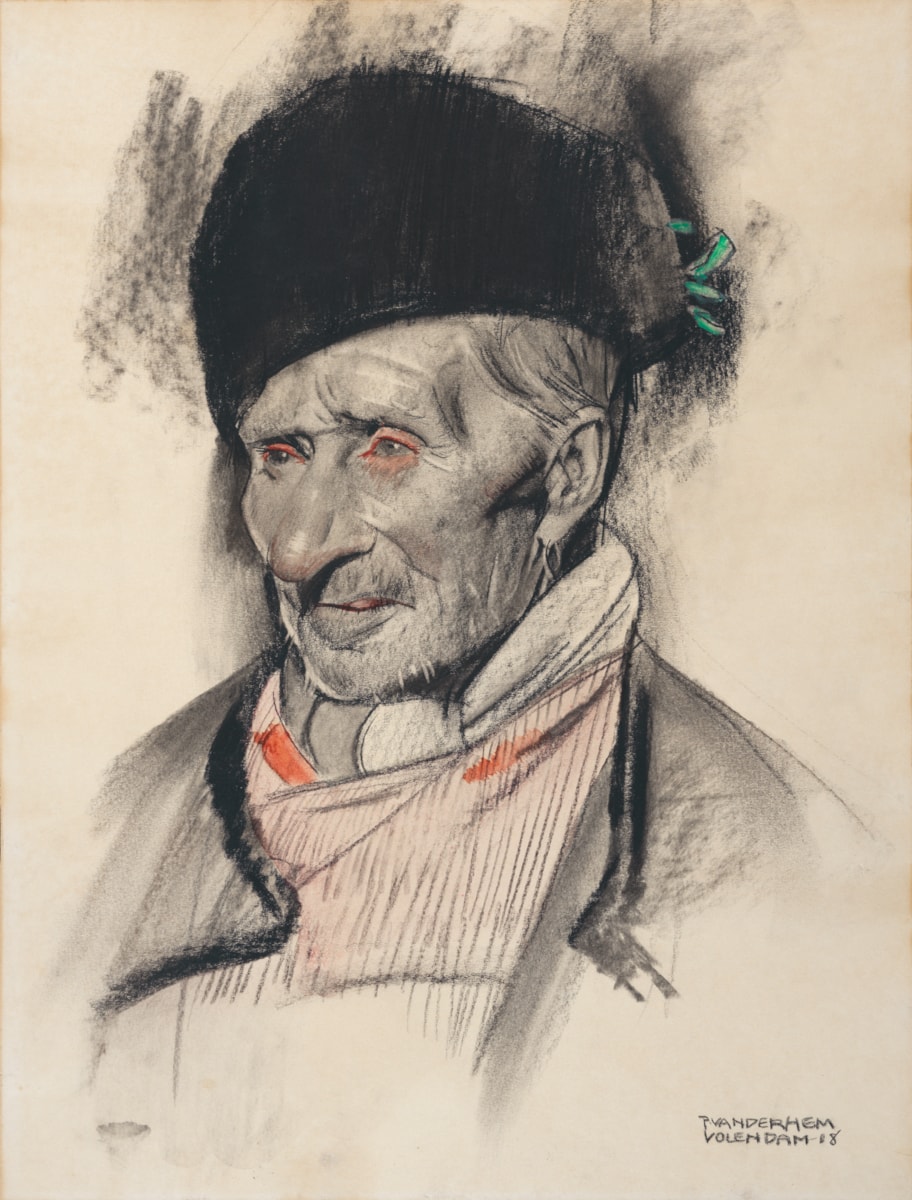
Piet van der Hem (Wirdum 1885 - The Hague 1961)
A Volendam fisherman
Description:
signed, inscribed, and dated: P.VAN DER HEM / VOLENDAM 18
coloured chalks, charcoal, and watercolour
570 x 415 mm
Provenance:
Private collection, Netherlands
Note:
In the mid-19th century, the remote fishing village of Volendam, eleven miles to the north of Amsterdam, was accessible only by canal boat or carriage. In an era of modernisation and mass urbanisation, the isolated village and traditional way of life of its inhabitants were idealised by many as an honest vestige of a rapidly vanishing past. From the 1880s onwards, artists and tourists in search of the “real” Holland were drawn to the village, and painters frequently made subjects of the old wooden cottages, quaint fishing boats and traditionally dressed inhabitants. Although Volendam remained largely unchanged until well into the 20th century, access to the village was facilitated to outsiders by the opening of the Hotel Spaander, a converted bar with purpose-built artist’s studios on the land directly behind it. This in turn led to the formation of an artist’s colony, which attracted a number of Dutch and international painters over the years, including Auguste Renoir, Pablo Picasso and Théo van Rysselberghe. Having captured life in the streets and musical halls of Paris, Rome, Madrid and Moscow during his early career, Piet van der Hem turned his sights towards the artist’s colony in 1917 and lived between the village and the nearby city of Edam until 1919. The present work, a character study of a fisherman with piercing eyes and traditional dress, belongs to van der Hem’s series of Volendammer portraits produced during this period.
Please contact us for a full catalogue entry.
